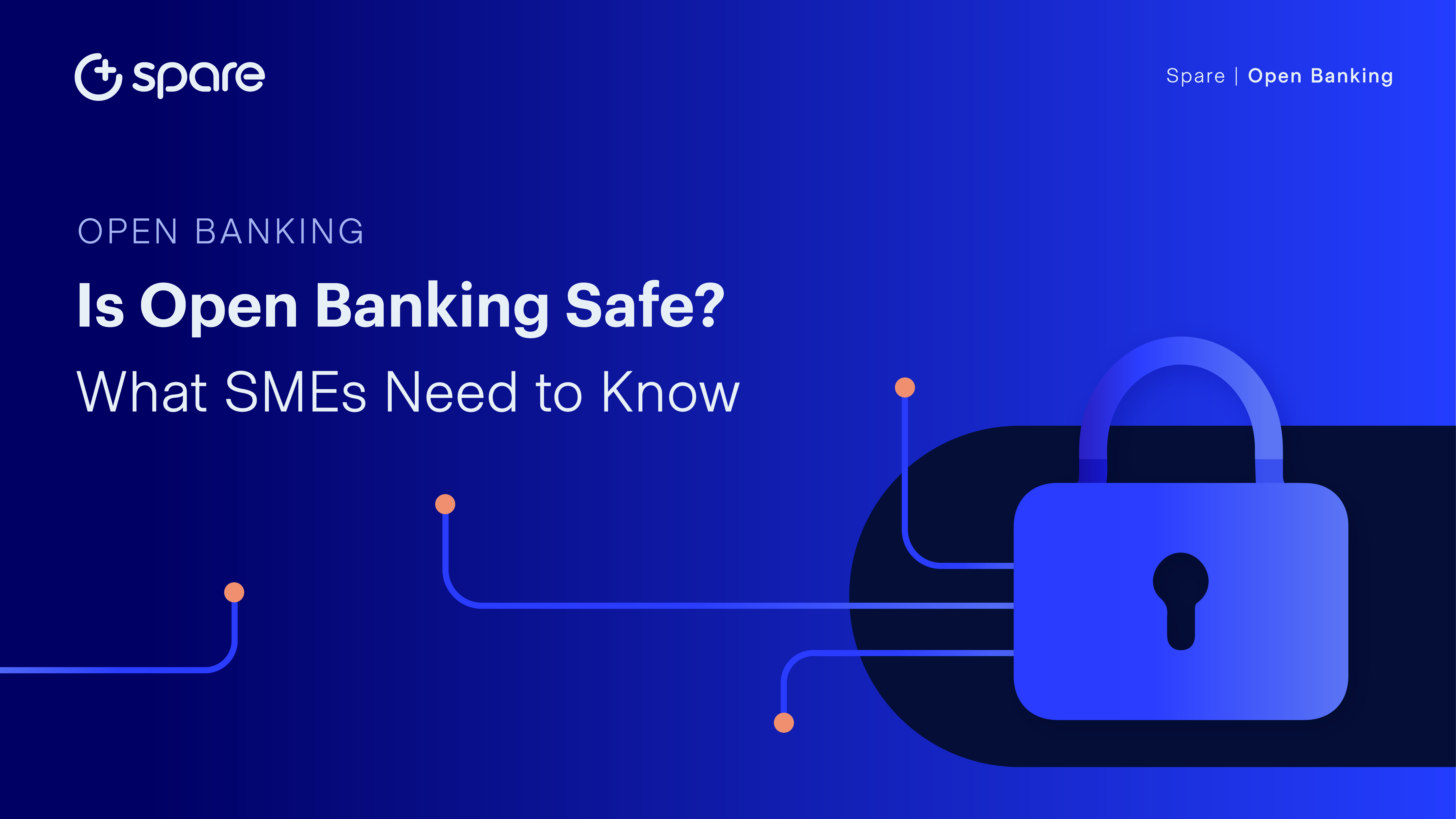Is Open Banking Safe? What SMEs Need to Know.

Understanding security, compliance, and what to expect from a regulated infrastructure partner.
As Open Banking continues to gain traction across the Middle East and North Africa (MENA), small and medium-sized enterprises (SMEs) are rightfully asking a key question: Is Open Banking safe?
The short answer: Yes - when implemented within a regulated, secure, and compliant framework.
But to fully understand how Open Banking ensures safety, it’s important to unpack the technology, the regulation behind it, and what to look for when choosing an infrastructure partner.
Why Security Matters in Open Banking
At its core, Open Banking is about giving businesses secure, permissioned access to customer financial data - allowing them to innovate, offer better services, and streamline financial operations.
But access to sensitive financial data requires robust protection.
Without strong regulatory oversight and secure technical infrastructure, Open Banking could be vulnerable to risks such as data breaches, fraud, and unauthorized access. That’s why the frameworks adopted by regulators in the GCC are built around security from the ground up.
Across the GCC, central banks have established robust regulatory frameworks to ensure the security and integrity of Open Banking services. Bahrain, where Spare is licensed, remains a regional pioneer, with the Central Bank of Bahrain (CBB) having introduced the region’s first dedicated Open Banking regulatory framework. It requires service providers to comply with standardized APIs, implement robust consent management, and deploy real-time monitoring and fraud prevention systems.
In Saudi Arabia, the Saudi Central Bank (SAMA) has introduced a phased Open Banking Framework that extends well beyond basic compliance, mandating strong customer authentication (SCA), data minimization, comprehensive audit logs, and continuous oversight and certification of third-party providers (TPPs).
The UAE’s Central Bank is advancing Open Finance through its Financial Infrastructure Transformation (FIT) program, emphasizing data confidentiality, risk-based access controls, and a tiered licensing system for TPPs.
Together, these initiatives establish a secure, interoperable foundation for Open Banking across the region.
What Makes Open Banking Secure?
Modern Open Banking systems are built with a layered security approach. Some of the key safeguards include:
End-to-End Encryption: All data exchanged between businesses, banks, and third-party providers is encrypted to ensure privacy and prevent interception.
Customer Consent Protocols: Access is only granted when a customer explicitly authorizes it, often with multi-factor authentication.
Regulatory Licensing: Licensed and regulated entities undergo rigorous vetting and are subject to ongoing compliance audits.
Tokenization: Sensitive data is often replaced with tokens to limit exposure.
Real-Time Monitoring: Transactions and access logs are continuously monitored for unusual behavior or attempted breaches.
How Spare Keeps Your Data Secure
At Spare, we are licensed by the Central Bank of Bahrain and regulated across multiple GCC jurisdictions, with compliance embedded into every part of our infrastructure.
We offer:
Compliance-Ready APIs: Built to meet and exceed regional regulatory requirements.
Bank-Grade Security Standards: Aligned with global best practices, including OWASP and NIST frameworks.
Consent-Driven Access: Customer data is never accessed without explicit permission.
AI-Powered Monitoring: Intelligent systems flag anomalies and prevent fraud in real time.
Regional Localization: We tailor our infrastructure to meet the technical and regulatory needs of each country we operate in.
Final Word for SMEs
For SMEs in MENA, Open Banking represents a powerful tool, it unlocks real-time insights, improves payment flows, and enables automation - all while reducing operational inefficiencies.
But security should never be an afterthought.
By working with licensed and regulated providers like Spare, SMEs can confidently adopt Open Banking with the assurance that their data, and their customers’ data, is protected by the highest standards in the region.
Open Banking is the future of smarter, more secure financial connectivity.